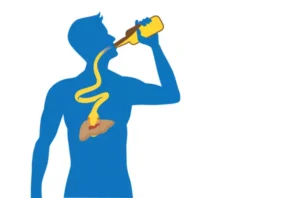
Children of alcoholic parents are at higher risk for a variety of challenges, including emotional distress, academic problems, and substance abuse later in life. Adult children of alcoholics can learn to understand the impact of their past and develop healthy coping mechanisms. Therapy can be a powerful tool for processing past trauma, building self-esteem, and establishing healthy boundaries.
Seeking Support Systems

Furthermore, support groups, such as Children of Alcoholics, offer spaces for individuals with shared experiences to connect and learn from each other. By seeking therapy and joining support groups, you can build a strong foundation for personal growth and recovery. Encouraging open communication within the family and creating a safe space for children to express themselves without judgment can strengthen family bonds and promote healing. Building trust and establishing healthy boundaries in relationships also contribute to a child’s sense of safety and well-being. It is important for children to learn to express their emotions effectively, whether through journaling, art therapy, or talking to a trusted individual.
Coping Mechanisms for Children and Adults

Adult Children of Alcoholics is a support group for those who suffer from emotional damage due to alcoholic or dysfunctional parents. At Castle Craig Hospital and Smarmore Castle Private Clinic, we =https://ecosoberhouse.com/ recommend that people with this background attend special therapy sessions. This may be individual counselling and/or attendance at a local ACOA meeting.
Effects on Adult Children of Alcoholic Parents
Open communication complements these emotional ties by fostering an environment where children feel safe to express their thoughts and concerns. When parents and children can discuss issues openly, without fear of criticism or judgment, it creates a supportive atmosphere. This open dialogue can be particularly beneficial for adolescents, who are navigating complex emotional and social challenges. Parental monitoring involves setting rules for appropriate and inappropriate behaviors, consistently enforcing penalties for rule violations, and overseeing friendship and peer-group choices. In families where alcohol abuse is prevalent, these crucial aspects of monitoring often fall by the wayside.
Developing Coping Strategies
- Growing up with an alcoholic parent can have a significant impact on a child’s life.
- Having an alcoholic parent increases a child’s risk of being physically, sexually or emotionally abused, according to the Centers for Disease Control and Prevention’s Adverse Childhood Experiences study.
- The lack of parental monitoring due to alcohol abuse can have a direct impact on the likelihood of adolescents engaging in substance abuse, as supported by studies like the one conducted by Dishion and Loeber.
- It’s essential for ACoAs and those supporting them to be aware of the resources available, including therapy, support groups, and strategies for developing healthier coping mechanisms.
- Parents with an AUD may have difficulty providing children with a safe, loving environment, which can lead to long-term emotional and behavioral consequences.
Parents with an AUD may have difficulty providing children with a safe, loving environment, which can lead to long-term emotional and behavioral consequences. In a study of more than 25,000 adults, those who had a parent with AUD remembered their childhoods as “difficult” and said they struggled with “bad memories” of their parent’s alcohol misuse. Some people experience this as post-traumatic stress disorder (PTSD), like other people who had different traumatic childhood experiences. Alcoholic parents (now referred to as parents with how alcoholic parents affect their children alcohol use disorder or AUD) affect their children in many ways, some so profound that the kids never outgrow them.


In addition, children of functioning alcoholics are often exposed to emotional abuse more than physical abuse or neglect. Unfortunately, emotional abuse can be subtle and go unnoticed, even if it leaves a psychological scar. If a child grows up without a drug addiction stable routine, they won’t know how to establish either. Stability can be as basic as having regular meals, attending school, or honouring holidays such as Christmas.




